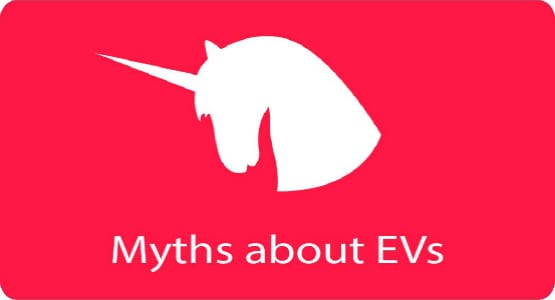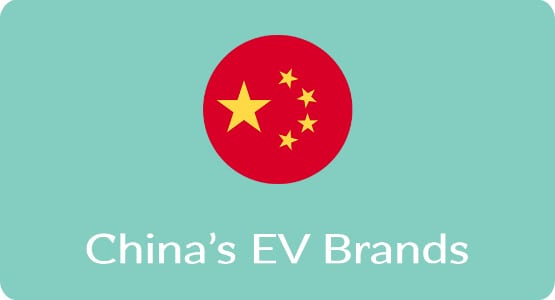TOP EV NEWS #1 – FIVE NEW EVs LAUNCHED THIS WEEK
This week saw the launch of five new entrants to the electric vehicle market, three of which go on sale in the coming month and two available on pre-order.
The most anticipated release is, of course, that of the Tesla Model 3, which was held on Friday the 28th of July when the first 30 cars were handed over to their owners. The Tesla Model 3 is already sold out for the next year as over 400,000 people have placed the $1000 deposit for the pre-order. Tesla announced the specification and price of the Tesla Model 3 at Friday’s event. The mass-market EV is available in a standard and long range version, the standard with a range of 220 miles priced at $35,000 (before incentives) and a long range version for $9,000 more extending the range to 310 miles. A fully loaded Model 3 with all the bells and whistles will set you back around $60,000 before incentives. See the full spec-sheet here.
This week also saw the release of the first fully electric Sports Utility Truck, the Bollinger B1. The B1 is available on pre-order, but no price has been set for the no-nonsense all-electric SUT.
A German start-up Sono Motors unveiled its Solar EV, the Sion. The Sion has a range of 250km plus integrated solar that will provide a further 30km per day. The Sion is available for pre-order starting at €500 but only expected for release in 2019. The price for the Sion is set at €16,000 and excludes the battery which could either be leased or purchased at present value price of around €4,000. Production of the Sion is funded through a crowd funding campaign commencing on the 18th of August 2017 with test-drive events around Europe through to October 2017 to be held in 11 cities in 7 countries.
In China, the SAIC / GM / Wuling joint venture, Baojun launched its first electric vehicle, the Smart look-alike Baojun E100 city car. GAC also released its much anticipated GAC GE3 SUV BEV. Both vehicles will go on sale in August. The Baojun will sell for CNY35,800 ($5,300) and the GAC GE3 starting at CNY 150,000 ($22,200).
In related news, FIAT Chrysler and (former) EV naysayer, Sergio Marchionne, this week announced during an Investor event that all cars of its luxury marque Maserati would be electrified post-2019. Mr. Marchionne went further stating that half of Fiat Chrysler’s lineup, including Alfa Romeo, will be electric from 2022. The strategy will be formulated over the next year as the company enters its 3rd five-year plan in 2019.

TOP EV NEWS #2 – TOYOTA PERSUING SOLID STATE BATTERIES
A Reuters report lifted the veil on Toyota’s electric vehicle plans further this week. The Reuters report claims the Japanese automaker is developing a new electric vehicle platform, based on solid state battery technology to enter the market in 2022. The advantage of solid state battery technology is that it addresses range and charging shortcomings of current lithium technology. A solid state battery can be charged in only a couple of minutes and has more storage capacity for longer range. Toyota, which has been lagging in the EV race is set to enter the EV market in China from 2019 with a mass market SUV based on the C-HR SUV. The C-HR EV will be developed using current lithium technology. Other automakers pursuing solid state batteries includes BMW who has set a 10-year plan to bring solid state EVs to market.

TOP EV NEWS #3 – USA SELF DRIVING ACT PROGRESSING
The US House Energy and Commerce Committee this week advanced legislation designed to keep autonomous vehicles safe and promote the advancement of the technology. The self-driving act is billed as the PAVE Act, which expands the existing authorization of the National Highway Traffic Safety Administration to evaluate exemptions from federal motor vehicle safety standards only if there is no reduction in safety and increases the number of vehicles for which exemption may be granted. The exemption will help the advancement of the autonomous driving development by allowing the industry to collect data and help Government to recall self-driving cars for safety reasons. The act is becoming increasingly important as more and more companies and states get involved in the testing of self-driving technology. Ride hailing company, Lyft, this week announced that it formed a self-driving division and will establish a self-driving research facility, named Level 5 in Palo Alto, California.
TOP EV NEWS #4 – MERCEDES TO ENTER FORMULA E
While the 3rd season of the Formula E is ending this weekend in Montreal, Canada with Renault e.dams set to win it for the third season in a row, two racing car heavy weights this week announced that they would join the series in the 6th season from 2019. Porsche announced this week that it would quit the Le Mans race and join Formula E, following sister company Audi who left the well known 24-hour race in October 2016. The other automaker to join the Formula E circuit was Porsches’ German compatriot and recent Formula 1 champion, Mercedes, who also announced this week that it will join the 2019 series, leaving the Deutsche Tourenwagen Masters to help with funding its participation in the emerging EV racing franchise.
TOP EV NEWS #5 – SHELL CEO BUYS INTO EVs
CEO of Royal Dutch Shell Plc, Ben Van Beurden, told Bloomberg in a televised interview that he is ditching ICE vehicles and buying an electric vehicle, all be it a plug-in hybrid Mercedes Benz S500e. The companies CFO already owns a BMW i3. Mr. Van Beurden said “The whole move to electrify the economy, electrify mobility in places like northwest Europe, in the U.S., even in China, is a good thing. We need to be at a much higher degree of electric vehicle penetration — or hydrogen vehicles or gas vehicles — if we want to stay within the 2-degrees Celsius outcome.” He went on saying “If policies and innovation really work well, I can see liquids peaking in demand in the early 2030s and maybe oil will peak a little bit earlier if there’s a lot of biofuels coming into the mix as well.”
The statement comes in the wake of the UK Government’s announcement that it will ban the sale of ICE and PHEV from 2040, joining countries like France, India, and Norway in such a move.
Shell is preparing itself for the shift away from fossil fuels by spending $1 Billion a year in its New Energies business unit.











